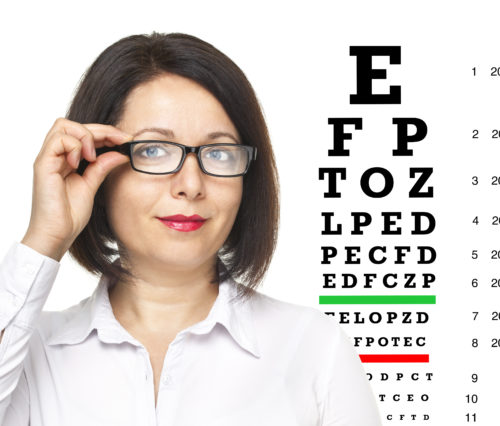May Is Healthy Vision Month

Every year during May, the National Eye Institute (NEI) calls our attention to the importance of taking care of our eyesight. This year’s event focuses on women’s vision. The NEI reports that two-thirds of people with blindness and visual impairment are women. Why? Women live longer, are at greater risk for autoimmune diseases, and their eyes are affected by age-related hormonal changes. The NEI wants women to know that the majority of vision loss is preventable, and treatment can improve vision in many cases.
But being female isn’t the only risk factor for eye diseases such as cataract, glaucoma, diabetic retinopathy and age-related macular degeneration. The top risk factor, as you might guess, is age. Today 8.2 million seniors in America are living with visual impairment, and according to a recent projection by researchers from the University of Southern California’s Roski Eye Institute, that number will double to 16.4 million over the next 35 years.
The USC study authors reported, “People who are visually impaired or blind can suffer both physical and mental health decline, including an increased risk for chronic health conditions such as diabetes, unintended injuries including a higher risk for falls, social isolation and withdrawal from activities that require driving or independent mobility, depression and even death.”
Vision loss is also costly to our society. The USC research team, led by Dr. Rohit Varma, reported that the economic burden of vision loss makes it among the costliest conditions in the nation.
What can we do to care for and protect our eyesight?
- Have your eyes checked regularly by an eye care professional, including a comprehensive dilated eye exam.
- Live a healthy lifestyle, including good nutrition, maintaining a healthy weight, and not smoking.
- Tell your doctor if you have a family history of vision problems.
- Wear sunglasses, and don’t choose a pair by style alone—be sure they block out both UVA and UVB radiation.
To learn more about the diagnosis, prevention and treatment of eye diseases, visit the National Eye Institute website.
The information in this article is not intended to replace the advice of your healthcare provider. Talk to your eye care professional with questions about your vision health.
Source: IlluminAge Communication Partners with information from the National Eye Institute and the University of Southern California Roski Eye Institute.


